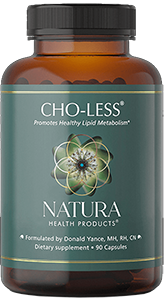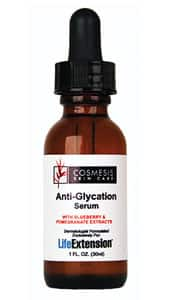 | September 3, 2010 | Clinical trial demonstrates antidepressant effect for SAMe | | The August, 2010 issue of the American Journal of Psychiatry published the results of a clinical trial conducted by Harvard Medical School and Massachusetts General Hospital researchers which found a significant benefit for S-adenosylmethionine (SAMe) against major depressive disorders in men and women who failed to respond to standard antidepressant drugs. The investigation, funded by The National Institute of Mental Health, is the first double-blinded, randomized controlled trial to evaluate SAMe, a natural compound available as a nutritional supplement, as an additive therapy against major depression in this drug-resistant population. The trial is a follow-up to a pilot study reported in 2004, which found a greater benefit for antidepressant drugs combined with SAMe than for antidepressants alone. For the current investigation, Harvard Medical School associate professor of psychiatry George Papakostas, MD and his associates assigned 73 adults receiving serotonin reuptake inhibitor drugs to receive 800 milligrams SAMe or a placebo twice per day for 6 weeks. Those who received SAMe experienced a 36.1 percent response rate and a 25.8 percent remission rate, compared to a 17.6 and 11.7 percent remission and response rate in the placebo group. "With each study we continue to gain a better understanding of SAMe's role in treating depression," noted Dr Papakostas, who is the director of treatment-resistant depression studies in the Department of Psychiatry at Massachusetts General. "This new finding, albeit preliminary and in urgent need of replication, suggests significant, clinically meaningful differences in outcome among patients who had SAMe added to their antidepressant medication treatment compared to those taking a placebo with their medication." "These findings provide preliminary support for the efficacy, safety, and tolerability of SAMe as an additive therapy for patients with major depressive disorders who do not respond to antidepressant treatment alone," he concluded. "Continued research, however, is urgently needed to more definitively further our understanding of the role of SAMe in the treatment of adults diagnosed with depression." "The study of Papakostas, et al. is persuasive," writes University of California, San Francisco professor of psychiatry J. Craig Nelson, MD in an accompanying editorial. "It is the first adjunctive treatment trial of SAMe and the first placebo-controlled trial of oral SAMe since 1993." "The era of development for new amine reuptake inhibitors appears to be coming to a close," he added. "Some novel approaches appear to be dead ends. SAMe offers a novel mechanism of treatment action and opens up a new area for future exploration." | |  |
| Treatment for depression is usually multifaceted, and there is no doubt that nutrition plays an important role. Research has shown that the body chemistry of depressed people is altered in various ways and that deficiencies in neurotransmitters, hormonal imbalances, and other nutritional deficits can contribute to clinical depression. Also, many people with depression do not eat enough, overeat, or eat nonnutritious foods. New research has also connected depression to inflammation and oxidative stress, which are both appropriately managed with nutritional supplements. Major depressive disorder is sometimes called major depression, clinical depression, or unipolar depression. Unipolar depression is so named because the disorder is characterized only by depression, as opposed to bipolar disorder, which is characterized by both depression and episodes of mania. People with major depressive disorder may have recurrent episodes of depression, and there is evidence that many people experience their first episodes of depression at a young age (Kessler RC et al 1998; Larsson B et al 1998). Episodes of depression may be separated by years or months and may become more common as a person ages. After an episode is over, most people will recover completely. People who recover only partially are more likely to experience another episode. Among adolescents, clinical depression is associated with substance abuse and suicide (Kessler RC et al 1998), and even among adults, as many as 15 percent of people diagnosed with depression die by suicide. Clinical depression is also associated with vascular and cerebrovascular disease (Thomas AJ et al 2003, 2004; Tiemeier H 2003). SAMe is derived directly from methionine. Its job is to provide methyl groups for reactions throughout the body, including the methylation of nucleic acids (RNA and DNA), proteins, and structures throughout the brain. SAMe is the precursor to such nutrients as creatine, glutathione, taurine, L-carnitine, and melatonin and can be found in almost every tissue in the body. Clinical trials comparing both oral and intramuscular forms of SAMe to tricyclic antidepressants show SAMe to be as effective as tricyclic antidepressants in reducing depressive symptoms (Mischoulon D et al 2002; Pancheri P et al 2002). SAMe is associated with fewer adverse events (Pancheri P et al 2002) and is better tolerated than conventional antidepressants (Delle CR et al 2002). Studies show a significant correlation between plasma levels of SAMe and improvement of depressive symptoms (Bell KM et al 1994). Some researchers propose that SAMe produces its antidepressant effects faster than conventional antidepressants and may potentiate the effects of tricyclic antidepressants (Mischoulon D et al 2002). It has been studied in the treatment of depression, schizophrenia, demyelination diseases, liver disease, dementia, arthritis, and other conditions. It is also necessary for normal circadian rhythms. |
|  | Cho-Less™   | | Life Extension® does not make a red yeast rice supplement, but has evaluated commercial sources using the most sophisticated high-resolution analytical techniques to detect citrinin content. Individuals who wish to obtain a red yeast rice supplement along with other beneficial nutrients may choose Cho-Less™, which adds the following ingredients which may help maintain healthy lipid levels which are already within a normal range: artichoke leaf extract, pantethine, guggul standardized extract, beta-sitosterol, niacin and policosanol. | | |   | | Glycation reactions are responsible for weakening collagen fibers’ regenerative ability, which leads to the characteristics we commonly associate with visible skin aging: wrinkling, sagging, and looseness. Fortunately, the ingredients in Cosmesis Anti-Glycation Serum with Blueberry and Pomegranate Extracts can help address the consequences of skin glycation in several ways. Blueberries contain powerful antioxidant and anti-inflammatory agents and are packed with phytonutrients called anthocyanins. Anthocyanins help keep skin looking youthful through their effects on the collagen matrix and improved microcirculation. Pomegranate extracts provide nutritional support for fibroblast cells in the skin’s dermis, resulting in healthier looking skin. | | | |  | | Life Extension Update | | What's Hot | | Life Extension Magazine® | |

